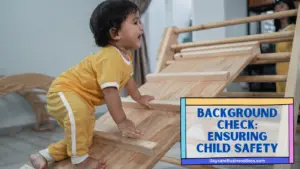Daycare centers provide a safe and interesting environment for children, fostering their growth and development. Behind this vital function are several key requirements that aspiring daycare employees must meet. These daycare course requirements include a variety of certifications that not only assure the well-being and safety of the children in their care but also provide caregivers with the knowledge and skills they need to flourish in this exciting sector.
To qualify best, you should fulfill daycare course prerequisites, including a high school diploma or GED, background check, CPR/First Aid certification, and completion of relevant childcare training courses. Specific requirements may vary by location and employer.
The Importance of Fulfilling Prerequisites

Fulfilling the prerequisites for a childcare course is more than just a formality; it is a key step in educating potential daycare providers about their critical tasks. These prerequisites are not simply checkboxes to be checked, but rather a foundational foundation that plays a critical role in training individuals with the key skills and knowledge required to provide a secure and caring environment for children.
In the field of daycare, the qualifications serve as a benchmark, a standard against which potential daycare professionals’ abilities and preparedness are tested. They are more than just formalities; they serve as a strong assurance for parents and guardians entrusting their precious children to carers. These requirements effectively serve as a quality shield, ensuring that the entrusted children will be cared for by competent individuals who are capable of managing every aspect of child development and safety.
Aspiring daycare providers engage themselves in a structured program that digs into the numerous facets of early childhood education and care by painstakingly meeting the course prerequisites. These qualifications cover a wide range of topics, from child psychology and behavior management to health and safety regulations. This broad knowledge base enables these experts to detect developmental milestones, evaluate indicators of distress or discomfort, and respond appropriately to each child’s changing requirements.
These preparations frequently involve hands-on training and experiences that enable students to apply theoretical knowledge in real-world circumstances. This aspect of the qualifications bridges the gap between theory and practice, allowing aspiring daycare providers to hone their abilities in a safe environment before embarking on their professional adventure.
Completing daycare course prerequisites demonstrates a dedication to quality. It emphasizes the commitment of people who wish to care for children to go above and beyond the bare criteria. The path through these preparations is transforming, instilling a deep sense of responsibility and empathy for the children in their care.
Read more about: Unlocking Doors of Opportunity: The Proven Steps to Opening a Daycare
High School Diploma or GED: The Educational Backbone
The key educational milestone of a high school graduation or its equivalent, the General Education Development (GED) credential, is at the heart of the credentials for daycare professionals. This qualification serves as the educational basis for daycare workers to construct their careers, emphasizing the importance of basic academic understanding in their everyday obligations.
The requirement for a high school diploma or GED emphasizes the crucial relevance of having a specific degree of educational attainment in early childhood education. This academic foundation serves as the foundation for a variety of critical abilities required by daycare professionals to flourish in their positions. For example, effective communication is essential in their relationships with both children and parents. The capacity to clearly and professionally transmit ideas, instructions, and concerns is critical for fostering a peaceful and productive environment within the daycare center. Similarly, record-keeping is an essential component of ensuring the well-being of each kid in their care. Documenting developmental milestones, health information, and any special requirements that require care is part of this process. A high school diploma or GED provides the educational basis for daycare personnel to keep correct and structured records that aid in the children’s growth and safety.
The educational requirement acknowledges the importance of instructional activities in the daycare context. While instruction in this setting may not be as structured as in a regular classroom, childcare workers frequently engage children in educational games, activities, and routines that help them develop cognitively and socially. A high school certificate or GED empowers these professionals with the basic academic skills needed to create and implement activities that fit with age-appropriate learning goals, creating a holistic learning experience.
A high school diploma demonstrates a candidate’s dedication to personal and professional advancement by demonstrating their commitment to finishing formal education. A GED, on the other hand, shows the ability to meet academic standards even if a traditional diploma was not pursued or obtained. This adaptability is crucial because it recognizes that people might have varied life trajectories while still meeting the educational requirements required for competent daycare providing.
Background Check: Ensuring Child Safety

The requirement of a background check for daycare personnel is strongly ingrained in the overall aim of protecting child welfare and protection. This severe criterion is more than a formality; it is a firm commitment to preserving an environment of exceptional safety and security in daycare settings. Daycare workers conduct a thorough assessment to uncover any previous instances of criminal activity or behaviors that may represent a threat to the safety of the children under their supervision by undergoing a full background check.
The fundamental reason for this thorough vetting process is to uncover potential dangers that could jeopardize the safety and well-being of the children entrusted to the daycare center. Children in their sensitive and formative years deserve an atmosphere that is both supportive and free of potential danger. The background check serves as an important barrier by screening prospective daycare personnel, preventing any persons with a history of questionable behavior from taking roles that include direct contact and responsibility for young children.
The obligation for a background check goes beyond simply policy compliance. It includes the creation of a solid foundation of trust among all parties. Parents and guardians who commit their children to childcare experts naturally want to know that their children will be in the hands of people who are honest and trustworthy. The thorough verification procedure validates the daycare facility’s dedication to prioritizing child safety above all else, establishing an atmosphere of trust and dependability.
The background check requirement goes beyond its procedural aspect; it is a proactive approach to child protection. It represents a common obligation to provide an environment in which children can thrive without fear or uncertainty. The daycare business serves as a foundation of assurance by guaranteeing that personnel in charge of childcare have been thoroughly vetted, assuring families that their children are in capable, trustworthy hands.
Read more about: Start Right: Daycare Business Essentials and Startup Checklist
CPR/First Aid Certification: Swift Responses in Emergencies
The unpredictability of accidents in the field of childcare emphasizes the critical need for preparation, and daycare environments are no exception. Mishaps are a continual possibility in these contexts as youngsters engage in active play and discovery. As a result, CPR/First Aid certification is an absolute requirement, an indispensable skill set that enables daycare personnel to respond to accidents or medical crises in a timely and effective manner.
This accreditation is more than just a procedural necessity; it is a physical manifestation of the childcare industry’s unshakable dedication to the well-being of the children entrusted to their care. Accidents can happen in the blink of an eye, ranging from minor bumps and scrapes to more serious catastrophes. Knowing how to perform CPR or offer first aid in these critical situations can mean the difference between life and death.
Whether it’s a child choking on a little object or an unanticipated allergic response, being able to respond quickly and precisely could save a child’s life. The CPR/First Aid certification provides daycare staff with the skills needed to stabilize and support a child’s condition until medical personnel arrive. Daycare personnel who are prepared to act decisively and effectively become crucial first responders in their care setting.
This certification fosters a profound sense of security and assurance among parents and guardians. Entrusting one’s child to a childcare center necessitates a high level of confidence, and parents understandably want to know that their children are in capable hands. The presence of CPR/First Aid qualified staff not only demonstrates the facility’s dedication to safety but also gives parents confidence. They can rest easy knowing that the daycare staff is capable of handling emergency circumstances confidently and competently.
CPR/First Aid certification embodies a comprehensive approach to childcare. Daycare experts acknowledge the importance of being prepared to address unanticipated problems in addition to providing educational and enjoyable activities. The qualification reflects their commitment to being well-rounded caretakers, guaranteeing not just the children’s emotional and intellectual growth but also their physical well-being.
Completion of Relevant Childcare Training Courses: Nurturing Child Development

A thorough understanding of child development and skilled caring methods are at the heart of developing a first-rate daycare facility. Achieving this level of excellence requires daycare staff to complete specialized childcare training courses, which serve as a crucial conduit for obtaining the expertise required to establish an atmosphere that is both enriching and nurturing for children.
Childcare training programs have the potential to convert childcare workers into capable and skilled carers. These courses provide professionals with a full toolkit to build an environment that fosters holistic child development through a dynamic blend of theoretical knowledge and practical implementation. Each developmental stage, from infancy through early childhood, necessitates a specialized approach, and these courses empower caregivers with the knowledge to construct activities that are not only pleasant but also educational, adapting to the particular needs and talents of each child.
The scope of these courses stretches much beyond simple babysitting abilities. They cover a wide range of topics, including behavior management approaches that enable professionals to respond effectively to difficult situations. This information is essential for fostering a harmonic and safe environment in the childcare setting, where children are encouraged to interact positively and acquire interpersonal skills.
Childcare training courses dive into the complexities of adequate nutrition for children, which is an important factor that affects their overall well-being and growth. With this knowledge, experts may prepare well-balanced meals and snacks that meet the nutritional needs of different age groups, ensuring that children get the nutrients they need to flourish.
In addition to physical nutrition, these courses focus on cognitive and social development. Professionals learn how to design activities that encourage children’s curiosity, creativity, and problem-solving abilities. Professionals are also learning how to establish an environment in which children can engage, share, and develop meaningful relationships with their peers.
The commitment to remain up to date on the latest techniques and insights in the area is a characteristic of outstanding childcare. Child development is a dynamic field that is continually changing due to new research and discoveries. Completing childcare training courses not only gives professionals the core information they need but also equips them to adapt to the ever-changing world of child development. Professionals may provide the greatest possible experiences for the children entrusted to their care by incorporating the most recent findings into their procedures.
Read more about: Unlocking Potential: Free Online Courses for Quality Childcare Provision
Variability of Requirements by Location and Employer
The criteria mentioned previously serve as a solid template for anyone who wants to work in daycare. However, it is critical to realize the inherent variety in these criteria, which is determined by geographical location and particular workplace rules. The childcare environment is a complicated tapestry of regional legislation, licensing criteria, and individual preferences, all of which interact to determine the precise prerequisites that candidates must achieve.
Geographic regions can have a significant impact on the requirements for working in daycare. Different countries, states, and even municipalities may have different regulations governing daycare professionals’ qualifications. These laws are frequently put in place to guarantee that children in daycare settings get a consistent level of quality and safety. Licensing regulations, background check methods, and even educational criteria might differ greatly between jurisdictions.
Each daycare centers and companies are diverse. Each institution may have its preferences or additional criteria that candidates must meet. Candidates with specific training in fields such as early childhood education, child psychology, or special needs care may be prioritized by some childcare centers. Others may prioritize soft qualities such as creativity, patience, and great communication skills. Adapting to these intricacies and matching them with an employer’s expectations might be critical in gaining a position in the competitive childcare industry.
Given this complex context, those contemplating a career in daycare should conduct extensive research and comprehension. Aspiring daycare providers must research the unique requirements that apply to their selected location and possible employers. This entails being acquainted with regional legislation and licensing requirements. It is also critical to stay educated about the specific needs of individual daycare centers or employers. This proactive approach not only boosts the candidate’s chances of meeting the qualifications but also demonstrates the candidate’s dedication and commitment.
Frequently Asked Questions

What are the most important requirements for pursuing a job in daycare?
Several qualifications must be met to be considered for a profession in daycare. These include having a high school graduation or GED, passing a background check, being certified in CPR/First Aid, and completing necessary childcare training classes. These requirements ensure that you have the educational foundation, safety skills, and childcare knowledge needed to offer a supportive environment for children.
Why is a background check required for daycare workers?
A background check is an important step in ensuring the protection of children in daycare settings. It aids in the identification of any criminal background that may constitute a risk to the well-being of children. This vetting procedure provides parents with peace of mind by ensuring that their children will be in the care of individuals with a clean background and a dedication to their safety.
Where can I locate childcare training classes that will meet these requirements?
Several avenues provide childcare training courses that match daycare requirements. Investigate community colleges, vocational schools, online platforms, and community organizations. CPR/First Aid certification courses are frequently offered by reputable organizations such as the American Red Cross. Research and select courses that are relevant to your career aspirations as well as the specific needs of the daycare business.
To learn more on how to start your own daycare checkout my startup documents here.
The information provided by DaycareBusinessBoss.com (“The Site”) is for general informational purposes only. All information on the Site is provided in good faith, however, we make no representation or warranty of any kind, express or implied, regarding the accuracy, adequacy, validity, reliability, availability or completeness of any information on the Site. Under no circumstance shall we have any liability to you for any loss or damage of any kind incurred as a result of the use of the Site or Reliance on any information provided on the Site. Your use of the Site and your reliance on any information on the Site is solely at your own risk.
This blog post is for educational purposes only and does not constitute legal advice. Please consult a legal expert to address your specific needs. Terms and Conditions. (https://daycarebusinessboss.com/terms-conditions/)

Meet Shawn Chun: Entrepreneur and Childcare Business Fan.
I’m a happy individual who happens to be an entrepreneur. I have owned several types of businesses in my life from a coffee shop to an import and export business to an online review business plus a few more and now I create online daycare business resources for those interested in starting new ventures. It’s demanding work but I love it. I do it for those passionate about their business and their goals. That’s why when I meet a childcare business owner, I see myself. I know how hard the struggle is to retain clients, find good employees and keep the business growing all while trying to stay competitive.
That’s why I created Daycare Business Boss: I want to help childcare business owners like you build a thriving business that brings you endless joy and supports your ideal lifestyle.

